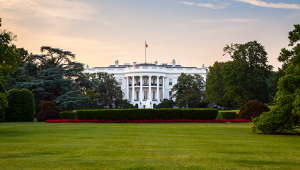In a statement issued yesterday, the ratings agency also confirmed its stable outlook on the West African nation’s rating and lauded its improving growth rate and falling deficit.
Cameroon’s economy grew by 4.4% last year, an improvement Fitch attributed to a pick-up in oil production. This is expected to continue to increase next year, pushing growth up further to 4.8%.
An increase in oil revenues also helped to improve the Cameroonian government’s fiscal position, Fitch noted. Last year’s deficit amounted to 2% of the country’s gross domestic product, compared with 3.4% in 2011.
Fitch also highlighted the ‘stabilisation’ of the country’s current account deficit at 3.7% of GDP.
It noted, however, the government had a ‘low but slowly rising indebtedness’.
It added: ‘At 17.7% of GDP in 2012, public debt is lower than peers. However, the expected rapid increase in bilateral loans from China, which bear a relatively high interest rate, will lead to an increase in the cost of debt.'
There were also continued structural weaknesses, the ratings agency said, including the country’s dependence on commodities and weak public governance.
Cameroon also faced weaknesses in its public finance management, Fitch added. The state owed a ‘substantial’ amount to companies such as oil refinery Sonara. ‘The government has still not cut substantial oil subsidies, and may have to reduce public investment to avoid slippage in fiscal targets,’ Fitch added.
Any ‘acceleration’ in Cameroon’s indebtedness to either domestic or overseas creditors could put downward pressure on the country’s credit rating unless there are improvements in infrastructure.
The rating could also be negatively affected by what happens as and when the country’s current president, Paul Biya, leaves his post. Biya has been president since 1982, and Fitch warned that his eventual succession would be a source of political risk. ‘It could break the balance of power between the different religious, ethnic and linguistic groups in Cameroon,’ the agency said.
Fitch did, however, note that if the government reduced its arrears and more generally improved its public finances, its rating could improve.
Acceleration of structural reforms that diversify the country’s economy could also improve the outlook, it added.













